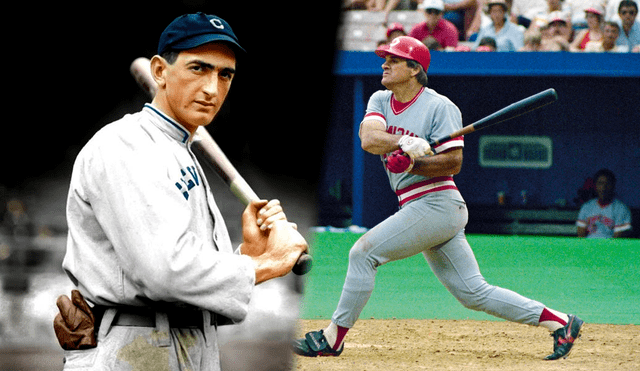Major League Baseball reverses lifetime bans for Pete Rose, ‘Shoeless’ Joe Jackson
Pete Rose and 'Shoeless' Joe Jackson have been removed from MLB's permanently ineligible list, making them eligible for consideration for the Hall of Fame.

Pete Rose, the all-time hits leader in Major League Baseball, and 'Shoeless' Joe Jackson, a storied figure in the figure in the game despite the 1919 World Series scandal, are now no longer on MLB's permanently ineligible list. This announcement from MLB Commissioner Rob Mandred clears the passage for both to be considered for induction into the Hall of Fame after years of debate.
The lifting of bans, which stemmed from both players' connections to gambling and the 1919 World Series scandal, has drawn mixed reviews from the baseball community. Some have criticized the lifting of the bans even posthumously, while other folks, such as Rose's attorney, have embraced the announcement as a long overdue act of forgiveness for two of baseball's most venerable figures.
MLB ends lifetime bans for Pete Rose and 'Shoeless' Jackson
MLB Commissioner Rob Manfred stated on Tuesday that Pete Rose, 'Shoeless' Joe Jackson, and other deceased players have been removed from the MLB's permanently ineligible list. The decision now allows the all-time leader in hits, Rose, and the legendary White Sox player, Jackson, to be reconsidered for the Hall of Fame.
In a letter to attorney Jeffrey M Lenkov, who had petitioned for Rose’s reinstatement in January, Manfred declared that an MLB suspension on individuals is automatically lifted upon their death. "Obviously, a person no longer with us cannot pose a risk to the integrity of the game." ESPN was first to report this announcement.
Pete Rose accepted a lifetime ban in 1989, after MLB concluded that he bet on games while managing the Cincinnati Reds.
The infamous Joe Jackson received a lifetime ban in 1921 when the MLB banned him and seven others for their alleged roles in fixing the 1919 World Series. Rose died in September, at age 83. Jackson died in 1951.
The decision also applies to 16 other late MLB players and one late owner, including Jackson's teammates Eddie Cicotte and George 'Buck' Weaver.
This means that Rose and Jackson are eligible to be considered for the Hall of Fame, and their cases will be considered by the Classic Baseball Era Committee in December 2027. In order to be considered for induction, they would need to earn 12 out of 16 votes and if selected, they could be inducted as early as the summer of 2028.
Jeffrey Lenkov, the person who started the petition for Rose's reinstatement, said he considered the decision a "long journey." He was glad that Reds' fans could celebrate Rose's legacy and the likelihood of Rose being elected to Cooperstown. "Reds Nation will not only be able to celebrate Pete's legacy; they can now hopefully look forward to the potential Pete can join the other baseball immortals," according to Lenkov.
This ruling stirred some controversy. John Dowd, in charge of the original investigation into Rose, disagreed with the ruling, suggesting the ban should not be lessened because the player is deceased. "There's no difference with him being dead - it's about behavior, conduct, and reputation," Dowd told ESPN.
Rose's remarkable career includes 4,256 hits, three World Series championships, and a lifetime batting average of .303. Jackson, despite being linked to the 1919 scandal, has a career .356 batting average, the fourth highest in MLB history.
Now that Rose and Jackson are both eligible for Cooperstown, their fate is in the hands of Hall of Fame voters, bringing the discussion of integrity, redemption, and legacy back into baseball.












